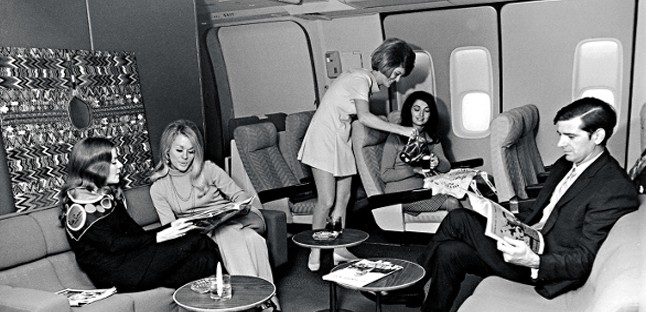Latest posts
What’s going on at parkrun?
Virtue-signalling all the way to the bank
Bud Light: brand purpose or virtue-signalling?
The Coddling of the American Mind, by Greg Lukianoff and Jonathan Haidt
Belonging, by Owen Eastwood
Such a simple thing
The Long Win, and The Scout Mindset
The Cult of We by Eliot Brown and Maureen Farrell
Coffee and covid modelling
John Lewis: so right-on it’s wrong
By theme
Marketing strategy
Insight & metrics
Innovation & inspiration
Brand & positioning
Marketing communications
Business purpose
Leadership
By industry sector
Financial services
Retail
FMCG
Technology & start-ups
Consumer services
Business to business
Other sectors
By type
Books
Comment
Quotes
Thought leadership
What’s going on in the airline business? It’s not just United man-handling passengers like excess baggage, or refusing people in the wrong clothes. British Airways is also attracting a lot of the wrong sort of attention for the changes it’s made to its short haul food service. While these airlines chase efficiency to reduce fares, Michael O Leary’s Ryanair has seen the customer service light, with a cheesy but seemingly sincere TV ad saying they won’t treat you mean any more.
In a sense, the entire industry is being repositioned.
The problem British Airways and others are facing is that they are letting one class of travel – indeed, one aspect of that class – define their entire brand. Since brand perceptions tend to linger, there’s a risk we will hear the barrage of negative messages about service slipping, without changing the belief they’re a little more expensive. For them, that’s the worst of all possible options.
Until recently, many airlines pretended that most of their passengers would be treated like royalty, and that the experience of flying with them would be like the golden era of Concorde. This is just not credible. Anyway, we all know the reality is different. There has to be a trade-off between price and service. So, with budget carriers covering the bottom end, traditional airlines made the mistake of thinking that meant they had to be the experience people. For years, they tried to persuade us that free drinks and assigned seats made it worth paying more to fly the flag.
That hasn’t really worked, at least not on short haul. Flying has got cheaper. People fly more. It’s not special. It’s no longer part of the holiday, just a means to an end. So, having tried and largely failed to persuade people the experience was worth paying more for, flagship carriers are cutting service corners to be more like the no-frills carriers.
This looks like a sensible response to a competitive marketplace – as long as they also use their biggest advantage. Unlike the budget carriers, the flagship airlines have a tiered offer within the plane – they can provide choices the no-frills guys can’t. If, like British Airways, the same route can be travelled in two, three or even four different classes, then they must use the entry level to compete with the budget airlines, and let higher fares and classes of travel offer the superior flying experience.
Businesses have to segment their offering, because not everyone wants to pay the same. Without a clearly tiered offer, we can’t choose between low price and indulgent experience. Airlines segment like mad through yield management, with all those different fare classes. But it’s an internal process – resulting in people paying different prices for the same product. Happy the business that segments its target market well, creates differentiated offers, suitably priced, and signals those propositions clearly so that customers can pay for what they care about most and make the right choices for them. Tesco, for all its woes, does this well. You know exactly where you are with its Value, Tesco and Finest ranges, each clear and unapologetic about what you get for what you pay. BA and its ilk should do the same. Cut even more in economy, and make it even better in business class. That’s giving the traveller a real choice.
Latest posts
What’s going on at parkrun?
Virtue-signalling all the way to the bank
Bud Light: brand purpose or virtue-signalling?
The Coddling of the American Mind, by Greg Lukianoff and Jonathan Haidt
Belonging, by Owen Eastwood
Such a simple thing
The Long Win, and The Scout Mindset
The Cult of We by Eliot Brown and Maureen Farrell
Coffee and covid modelling
John Lewis: so right-on it’s wrong
By theme
Marketing strategy
Insight & metrics
Innovation & inspiration
Brand & positioning
Marketing communications
Business purpose
Leadership
By industry sector
Financial services
Retail
FMCG
Technology & start-ups
Consumer services
Business to business
Other sectors
By type
Books
Comment
Quotes
Thought leadership
